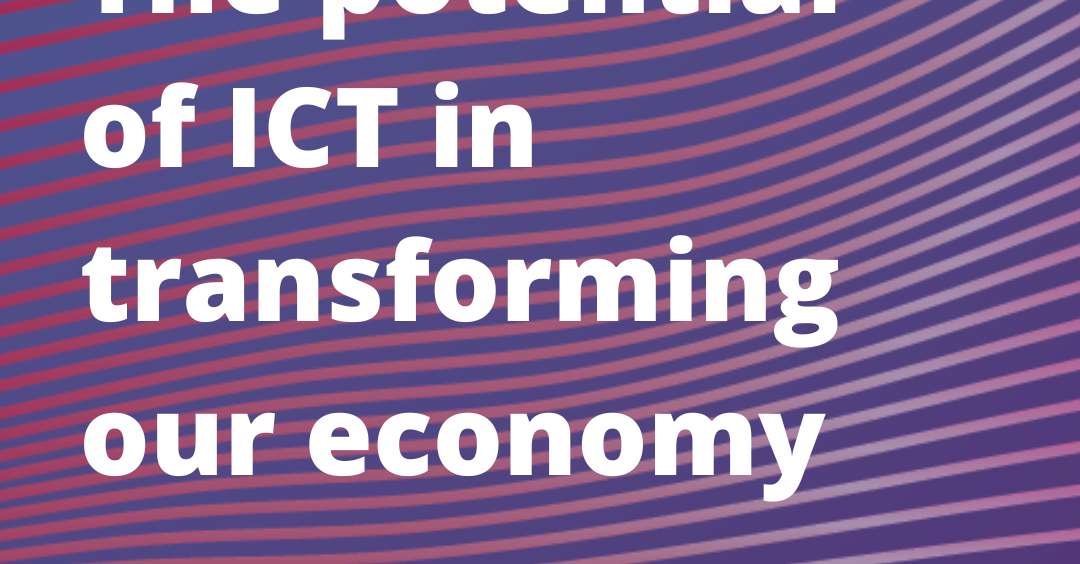Leveraging ICT: Empowering Economic and Social Transformation
In our modern era, Information and Communication Technology (ICT) serves as a pivotal force in driving economic growth and social development. The integration of technologies such as mobile broadband, high-speed Internet, and computing not only fosters economic expansion but also enhances connectivity and productivity, propelling societies towards greater prosperity.
The economic impact of ICT extends far beyond mere financial gains. Studies reveal that investing in ICT infrastructure can substantially bolster a country’s GDP growth, with even a modest increase in household penetration yielding significant economic benefits. This underscores the transformative potential of ICT in driving sustainable economic progress and fostering innovation-led growth.
Moreover, the societal benefits of ICT are profound and multifaceted. By facilitating improved access to essential services such as healthcare and education, ICT plays a crucial role in advancing social equity and inclusivity. Through collaborative efforts between the ICT sector, regulatory bodies, and government agencies, communities can harness the power of technology to address pressing social challenges and enhance quality of life for all citizens.
However, realizing the full potential of ICT requires proactive collaboration and strategic policy interventions. Governments must provide conducive regulatory frameworks and allocate resources to support ICT infrastructure development and digital literacy initiatives. By fostering an environment conducive to innovation and entrepreneurship, policymakers can empower businesses to leverage ICT as a catalyst for growth and competitiveness.
ICT stands as a cornerstone of economic and social transformation in the 21st century. By embracing technology-driven solutions and fostering a culture of innovation, nations can unlock new opportunities for sustainable development and build a brighter future for generations to come.
In addition to its economic and social benefits, ICT also plays a vital role in promoting environmental sustainability. By enabling remote work and virtual collaboration, ICT reduces the need for physical commuting, thereby curbing greenhouse gas emissions and alleviating traffic congestion. Furthermore, ICT solutions such as smart grids and energy-efficient technologies contribute to the transition towards a low-carbon economy, helping nations meet their climate targets and mitigate the impacts of climate change.
Moreover, ICT has the potential to revolutionize education and lifelong learning, democratizing access to knowledge and empowering individuals with new skills and competencies. Online learning platforms, digital libraries, and educational apps offer flexible and personalized learning experiences, bridging the gap between traditional education systems and the evolving needs of the digital age. By leveraging ICT in education, countries can enhance workforce readiness, promote lifelong learning, and foster a culture of innovation and creativity.
Furthermore, ICT serves as a catalyst for inclusive growth and poverty alleviation, particularly in developing economies. Through initiatives such as mobile banking and e-commerce, ICT enables greater financial inclusion and access to markets for marginalized communities and small businesses. By leveraging digital platforms and mobile technologies, individuals can overcome geographical barriers and participate more actively in economic activities, thereby reducing inequalities and fostering inclusive economic development.
Additionally, the digital transformation brought about by ICT has the potential to revolutionize healthcare delivery and improve public health outcomes. Telemedicine, wearable devices, and health monitoring apps enable remote patient care and personalized healthcare services, empowering individuals to take control of their health and well-being. Moreover, big data analytics and artificial intelligence (AI) enable healthcare providers to make data-driven decisions, optimize resource allocation, and enhance disease surveillance and management.
In conclusion, the transformative power of ICT extends across multiple dimensions, encompassing economic growth, social development, environmental sustainability, education, and healthcare. By embracing ICT and fostering a conducive policy environment, nations can harness the full potential of technology to address pressing challenges, promote inclusive growth, and build resilient and sustainable societies for the future.


